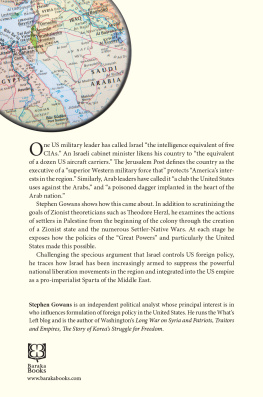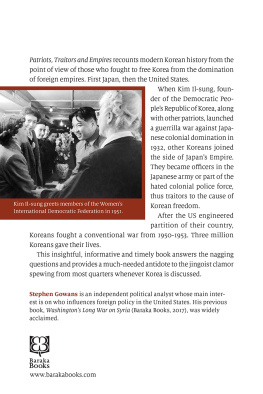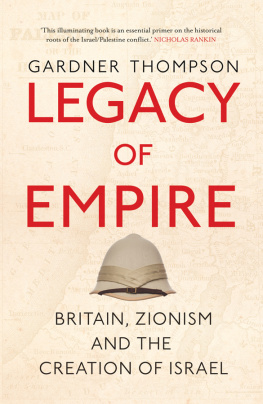All rights reserved. No part of this book may be reproduced or transmitted in any form or by any means, electronic or mechanical, including photocopying, recording, or by any information storage and retrieval system, without permission in writing from the publisher.
Baraka Books
ISBN 978-1-77186-183-0 pbk; 978-1-77186-193-9 epub; 978-1-77186-194-6 pdf; 978-1-77186-195-3 mobi/pocket
Cover photo: iStock
Book Design by Folio infographie
Editing and proofreading: Barbara Rudnicka, Robin Philpot
Legal Deposit, 2nd quarter 2019
Bibliothque et Archives nationales du Qubec
Library and Archives Canada
Published by Baraka Books of Montreal
6977, rue Lacroix
Montral, Qubec H4E 2V4
Telephone: 514 808-8504
info@barakabooks.com
Printed and bound in Quebec
Trade Distribution & Returns
Canada and the United States
Independent Publishers Group
1-800-888-4741 (IPG1);
orders@ipgbook.com
We acknowledge the support from the Socit de dveloppement des entreprises culturelles (SODEC) and the Government of Quebec tax credit for book publishing administered by SODEC.
INTRODUCTION
The United States has vital strategic interests in the Middle East, and it is imperative that we have a reliable ally whom we can trust, one who shares our goals and values. Israel is the only state in the Middle East that fits that bill .
Jesse Helms, Chairman of the Senate Committee on Foreign Relations, 1995-2001
Israel is the Wests outpost in the Middle East .
Benjamin Netanyahu, 1993.
Since the French Revolution, the political Left has embraced the view that human nature is benevolent and capable of progress toward perfection, that the roots of humanitys problems are to be found in its social institutions and not in individuals, and that embodied in the future is the promise of prosperity and relief from dehumanizing toil, freedom from superstition, religion and mythology, and growing social, political and economic equality.
The political Right, by contrast, prefers the status quo or a return to a presumed glorious past, favors hierarchy over equality, promotes religion and mythology over reason, and embraces the conviction that human beings are afflicted by inherent and immutable weaknesses, and that the potential for human progress is, therefore, limited.
For the Jews, two signal events in the history of the political Left were significant: the French Revolution and the Russian Revolution. The French Revolution, committed to the ideals of human progress, reason and expanded (but by no means universal) equality, emancipated the Jews in France. The Jacobin Maximilien Robespierre insisted on the repeal of all discriminatory laws against the Jewish community. How can you blame the Jews for the persecutions they have suffered in certain countries? he asked. These are, on the contrary, national crimes that we must expiate by restoring to them the imprescriptible rights of man of which no human authority can deprive themLet us give them back their happinessand their virtue by restoring their dignity as men and citizens.
The Russian Revolution, which overthrew the Tsarist monarchyan institution that had treated the Jews as sub-humans, and engineered countless anti-Jewish riots (pogroms)emancipated the Jews of the Russian Empire. The Tsars secret police had used anti-Semitism as a weapon against the advancing political Left, relying on the Black Hundreds, an ultranationalist organizationNazis avant la lettre to shore up flagging support of the Romanov monarchy. Lenin, the Bolshevik leader, commented: If in a country as cultured as Englandit was necessary to behead one crowned brigand in order to teach [subsequent] kings to be constitutional monarchs, then in Russia it is necessary to behead at least one hundred Romanovs to teach their successors not to organize Black Hundred murders and Jewish pogroms.
Jews were vastly over-represented in the movement for equality inaugurated by the French Revolution and extended by the Bolsheviks. They were drawn to the political Lefts commitment to freedom from discrimination and its vision of a future of social, political and economic equality.
Political Zionism, a movement to reconstruct the glorious past of Jewish nationhood in Palestine, is a movement of the political Right. Zionism, today, is concretely expressed in the state of Israel, the recreation of an antique Jewish state on land that Old Testament mythology defines as promised to the Jews by their deity.
The father of political Zionism, Theodore Herzl, a non-religious nineteenth century Austrian Jew, was clearly a partisan of the political Right. He saw anti-Semitism, not as a social institution that could be changed, but as a largely incorrigible part of the nature of non-Jews that was resistant to change. In his view, and in the view of Zionists today, anti-Semitism is inhered in human naturepermanent and ineradicable. The only solution to the presumed immutability of anti-Semitism, according to Herzl and his Zionist followers, is Jewish separationa viewpoint that anticipates black separatist solutions to the supposed fixity of anti-Black prejudice and persecution. Accepting Zionism as a legitimate solution to anti-Semitism is tantamount to trying to solve the problem of anti-black racism in the United States by depopulating a section of the African continent by force to make way for the mass migration of US citizens of African origin.
Herzl rejected political equality in favor of aristocracy, was a social Darwinian who believed the triumph of the strong over the weak was desirable, and, like reactionaries before and after him, embraced a return to a glorious pastin his case, to the Jewish state of antiquity.
Herzl sought the backing of colonial powers for his palingenetic project, offering Zionism as a solution to the challenge posed by the political Left in Europe in exchange for their sponsorship of his plan to colonize Palestine. The Austrian journalist promised that, rather than pursuing revolution in Europe, Jews would settle in the land of the Arabs, a process of exporting Europes problems to the hinterland. By turning restless proletarians into landowners, as the philosopher G. W. F. Hegel had once termed the outcome, the danger of revolution in Europe would be eclipsed through a spatial solutionthough at the expense of the natives who would be dispossessed. Labor Zionism, the dominant Herzl-inspired Zionist movement in Palestine until the 1970s, even lent a faade of Leftist legitimacy to the project, promoting agricultural communes and invoking Marxist rhetoric. Eventually, Labor Zionism collapsed, incapable of resolving its contradictions. Socialism, with its commitment to universal equality, does not mix with Zionism, with its commitment to Jewish particularism.
Herzl also promised the rulers of imperial Europe that a Jewish state under their sponsorship would protect their interests in the Middle East; it would be an outpost of civilization in what he called a sea of barbarism. The state apparatus of Herzls political Zionism would become a power projection platform for whatever part of Europes political Right would sponsor it. The initial sponsor, in the second decade of the twentieth century, was imperial Britain. Imperial France followed in the sixth decade, providing Israel with the foundation of a nuclear arsenal. Since 1967, the United States, the greatest imperialist power in history, has used Israel in exactly the manner Herzl intended a future Jewish state in Palestine to be usedas a battering ram to knock down all resistance to the domination of the Orient by the Occident.
Not surprisingly, given the origins of its founding ideology, Israels role in the world has been to advance the interests of the political Right, or, to put it another way, to frustrate the advance of the political Left.











